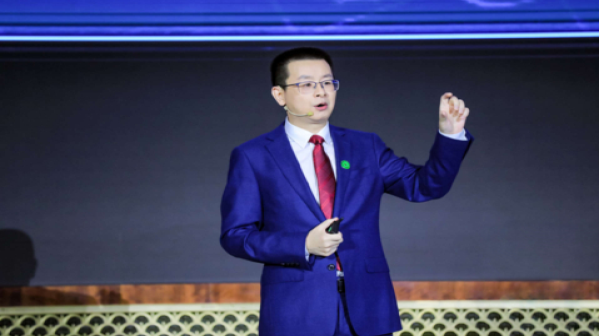Huawei recently held the Top 10 Trends of Data Center Facilities conference, themed “Smart DC, Building the Green Future”. Fei Zhenfu, President of Huawei Data Center Facility Domain, released a white paper outlining Huawei’s insights on data center facility trends that aim to promote sustainable development in the data center industry.
According to Mr. Fei, as global computing demand continues to grow exponentially in the digital intelligence era, there will be a surge in data center construction. To achieve carbon neutrality, the industry must prioritize energy conservation, carbon emission reduction, and green transformation. This presents both challenges and opportunities. Drawing from its experience and industry insights, Huawei has identified the following 10 trends:
Trend 1: Low Carbon
Data centers will adopt green, low-carbon solutions and utilize clean energy sources like PV, wind, and hydropower to minimize their carbon footprint. By 2027, green power utilization is expected to exceed 50%. Advanced energy conservation solutions and technologies, such as waste heat recovery, will be implemented to improve data center energy efficiency and recovery rates.
Trend 2: Sustainability
New sustainability indicators for data centers will be introduced, including renewable energy utilization, water usage effectiveness (WUE), carbon usage effectiveness (CUE), space usage effectiveness (SUE), grid usage effectiveness (GUE), material recovery rate, and lifetime contaminant emissions, in addition to the existing power usage effectiveness (PUE).
Trend 3: Fast Deployment
Data centers must be rapidly deployed to meet skyrocketing computing demands, with construction periods decreasing from 12 months to six months or less.
Trend 4: High Density
As chip performance and power consumption improve, the demand for high-density data centers will increase. Cloud data centers will become mainstream, and diversified computing collaboration will become the norm. Standard power density per IT rack will increase from 6–8 kW to 12–15 kW by 2027. Power density in supercomputing and intelligent computing centers will reach 30 kW or higher.
Trend 5: Elasticity
Future data centers will be more flexible regarding upgrades, with one generation of facilities supporting power evolution over two to three generations of IT equipment. A standard design will facilitate on-demand deployment and elastic capacity expansion.
Trend 6: Prefabrication
The prefabricated and simple architecture will tackle challenges like long construction periods and complex O&M faced by traditional data centers. In the future, a data center building will house over 1000 racks, and a campus will accommodate over 10,000 racks. The prefabricated design will shorten the construction period for a 1000-rack data center from 12 months to 6 months, enabling rapid delivery and on-demand deployment.
Trend 7: Storage and Backup Integration
Renewable energy and energy storage will be necessary for power-hungry data centers. Energy storage systems (ESSs) deployments in data centers will integrate short-term backup power systems to participate in frequency regulation and peak shaving, enhancing power grid stability. Peak shaving will also improve the grid usage effectiveness (GUE) so that more IT racks can be deployed to increase revenue.
Trend 8: Distributed Cooling
A distributed cooling system uses cooling sources for each data hall and adopts a redundancy configuration as required. In the future, distributed cooling systems will gradually replace centralized cooling as the preferred solution for large data centers due to their flexible architecture and high reliability.
Trend 9: Smart O&M
Smart O&M is crucial for enhancing data center resource utilization and reliability. Intelligent operations will automatically determine data center asset statuses to maximize asset value. Intelligent maintenance will identify faults and optimize energy conservation in real time to improve O&M efficiency, achieving predictive maintenance and optimal energy efficiency.
Trend 10: Security & Trustworthiness
As digitalization and intelligence advance, data centers will strengthen their hardware reliability, software security, system resilience, safety, privacy, and availability. AI technologies will implement predictive maintenance on components, devices, and systems at the hardware level. The hierarchical defense will be provided at the software level. A combination of software and hardware measures will boost data center reliability.
Moving forward, Huawei will strengthen technological innovation to lead industry development and offer more competitive products and solutions to build a solid digital foundation for a greener, low-carbon future for the data center industry.
For more information, please download the White Paper on the Top 10 Trends of Data Center Facilities HERE.
Related News:
ServiceFabric Strengthens Digital Realty and Hivelocity Relationship

